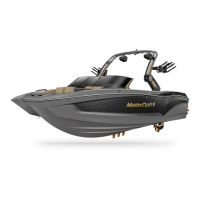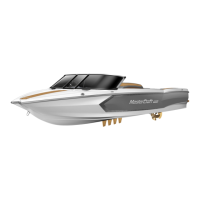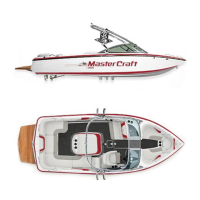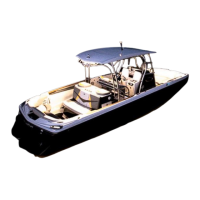• Mooring lines and fenders
• Extra engine oil
• Tool kit
• Portable, battery-operated AM/FM radio or weather
radio/scanner
Sound Producing
Devices
Navigation rules require sound signals to be made under
certain circumstances. Meeting, crossing and overtaking
situations, which will be described in some detail shortly, are
examples of when sound signals are required. Recreational
vessels are also required to use sound signals during periods
of reduced visibility. Your Aviara boat is equipped with a horn,
but you may also purchase after-market devices in case of
potential electrical disconnect or failure.
The following are standard signals when using a whistle:
• One prolonged blast: WARNING.
• One short blast: PASS ON MY PORT SIDE.
• Two short blasts: PASS ON MY STARBOARD SIDE.
• Three short blasts: MY ENGINES ARE IN REVERSE.
• Five or more blasts: DANGER!
NOTE: The requirement to carry a bell on board no longer applies to
vessels operating on International Waters.
Visual Distress
Signals
All vessels used on coastal waters, the Great Lakes, territorial
seas and those waters connected directly to them up to a point
where a body of water is greater than two miles wide, must be
equipped with USCG-approved visual distress signals. Vessels
owned in the United States but operating on the high seas must
be equipped with USCG-approved visual distress signals.
VDS
REQUIRED
Open Water
Bay
River
VDS
NOT REQUIRED
Less than
2 miles

